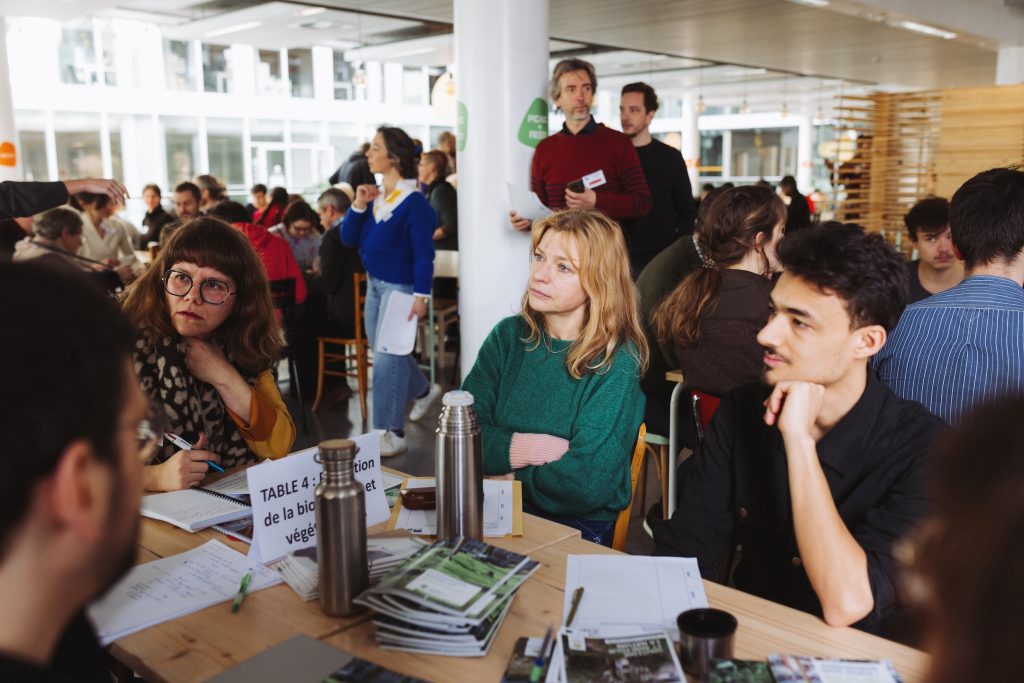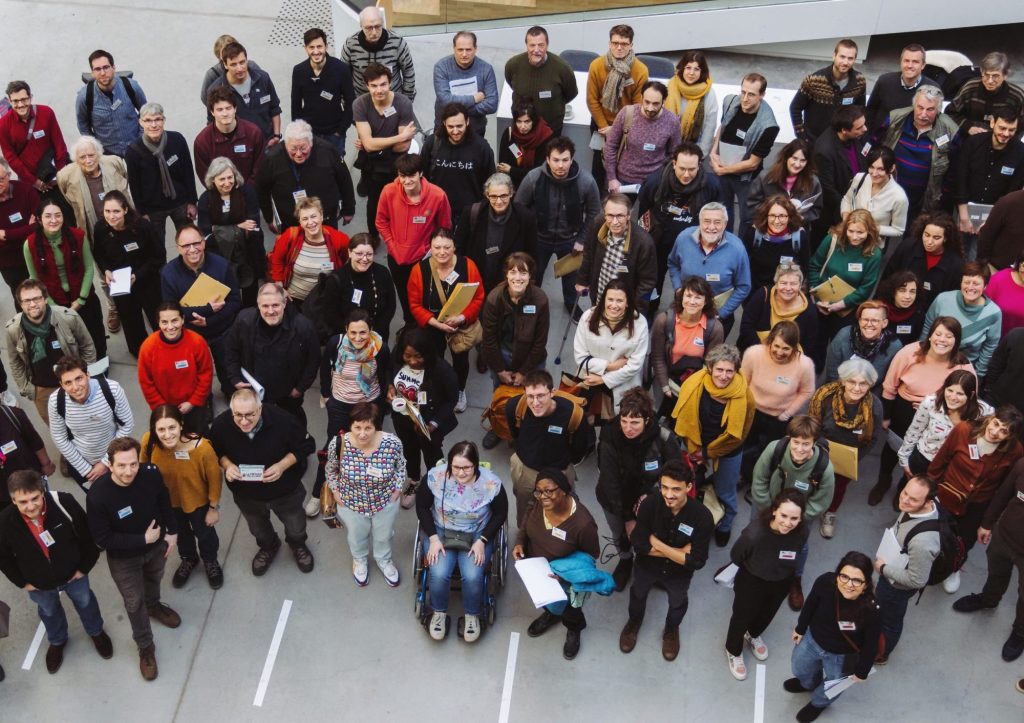“One of the shortcomings of our current democracy is that it is not good for long term problems like climate change,” explains Vermaas.
There are numerous examples of politicians delaying difficult climate decisions simply because the solutions will bring them little immediate political capital. Citizens are aware of this and are increasingly concerned that government response to climate change is lacking, says Vermaas. The rise of climate assemblies, typically as one-off processes, is evidence of citizens’ growing desire to get more involved in tackling climate issues.
The Brussels permanent climate assembly began its first round of debates in February of this year. It involves one assembly each year. Every assembly involves around 100 citizens, different people each time, and runs over three to four months. The Proposals and resolutions from this year were shared with regional government ministers in June, who will provide initial responses to participants in September.
The assembly has an innovative feature that addresses the shortcoming of many previous climate assemblies: A small follow-up committee of participants, who will track the responses of the regional government to the proposals and follow up on any that have not been addressed. In this way, the level of government accountability is enhanced.
How it all started
The initiative for the permanent climate assembly came from the regional Brussels government in 2019. Partially inspired by Macron’s Citizens’ Convention for Climate in the wake of the Yellow Vest movement in 2019, it started as an announcement from the regional government that a public debate on climate change needed to be established. This, together with a climate law requiring the participation of citizens in the development of climate governance, provided the initial impetus for what is now the world’s first permanent climate assembly.
Brussels had already held climate assemblies on a local level. The region also has a significant amount of citizen participation at parliamentary level, so this initiative did not emerge from a vacuum, explains De Rijcke. He has been project manager of the permanent climate assembly since its inception.
De Rijcke has been working closely with outside consultancy G1000 on the design process and the implementation. At the start of the process, they spent three days with a group of experts in order to find a model that “is more linked to the Brussels reality,” says De Rijcke.
He has also worked hard to build links at the local government level. The permanent assembly itself works at the regional level. Yet it is the nineteen communes of Brussels which make up the local level that have the closest connection to citizens, explains de Rijcke. He admits that in spite of their efforts to build bridges between these two levels, “we are not there yet.”
Technology to accompany the citizens assembly
G1000 has designed an accompanying platform for the permanent climate assembly. The platform is open to the public and also works as “a sort of archive” for the future, explains De Rijcke. Participants are also able to use the platform to discuss issues of concern with one another and to share relevant videos or articles with fellow participants.
However, De Rijcke admits that in spite of a variety of efforts to encourage participants to sign up and build an online profile, only about 10% have actually done so. “It’s very difficult, people don’t have a lot of time and have already spent a lot of time attending.” There are always those citizens and participants who are very invested and eager to get involved on all levels, but there are many who are not.

Representativeness
This raises the perennial challenge of representativeness. Currently, the first stage in the selection process is to send 10,000 initial letters to randomly selected addresses in the Brussels area. However, De Rijcke has reservations about this approach. There are many hard-to-reach individuals who never receive the letter or won’t open it even if they do. “You can write whatever you want in the letter, but it will not change anything if it is not opened,” he says.
They have now made changes in line with G1000’s evaluation of the first cycle. More money has been allocated to participants so that they are now paid €75 for a day of preparation and a day of participation, instead of €35. They have also provided QR codes for access to information in seven different languages including Arabic and Spanish. “We also try to allocate more money to catering” laughs De Rijcke, because good food can be a big draw.
They also organised information sessions for those who were unsure whether they wanted to participate or not. In spite of low attendence, De Rijcke explains that they will run these sessions again this year. This is because they have found that those who attend, often part of a hard-to-reach demographic, typically decide to sign up for the assembly. For De Rijcke, actively recruiting these people is more effective than sending out thousands of letters to randomly selected addresses. In the next cycle, they will also work more closely with civil society groups who help young people and those living in less affluent conditions.
Passing on the baton
This year’s topics focus on housing and the environment. Citizens were particularly concerned about ensuring green spaces near where they lived as well as good quality housing for all. The inherent tension in these two priorities resulted in a variety of rich discussions and compromise between citizens, says De Rijcke.The next cycle will focus on food – a topic that has been chosen by a group of 25 randomly selected participants from the first assembly. In this way, the baton is passed on to the next group of particpants.
Looking ahead, De Rijcke would like to see more serious investment from the government in initiatives like this. Indeed, he and many of his colleagues are in favour of compulsory participation in initiatives like climate assemblies. “There is so much potential in it but at the same time there is so much that still has to be worked on.” It is ultimately a political choice, explains De Rijcke but not all politicians are eager to relinquish some of their power.
Yet as Vermaas points out, elections simply do not provide enough opportunity for engagement and deliberation, especially on complex long term issues like climate change.
